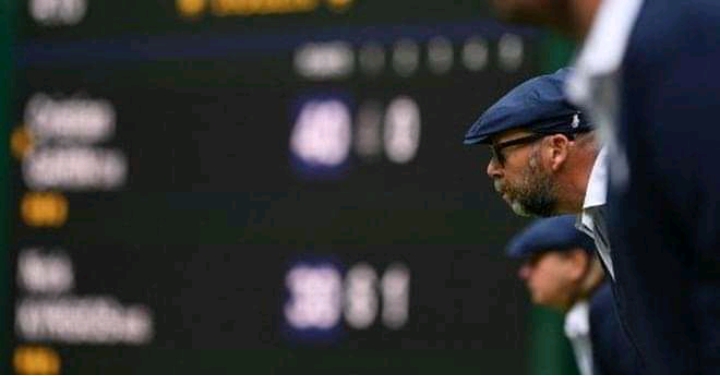Breaking News
“Goodbye Line Judges! Wimbledon’s SHOCK Move to Fully Electronic Line Calls Stuns Fans!”

Wimbledon will break with tradition by replacing line judges with an electronic line-calling system starting from the 2025 Championships, the All England Club announced on Wednesday, October 9, 2024. This decision marks the end of 147 years of human line judges officiating the event. Electronic line calling was initially tested at the ATP Next…
Wimbledon will break with tradition by replacing line judges with an electronic line-calling system starting from the 2025 Championships, the All England Club announced on Wednesday, October 9, 2024. This decision marks the end of 147 years of human line judges officiating the event.
Electronic line calling was initially tested at the ATP Next Gen Finals in 2017 and became more widespread during the COVID-19 pandemic. From 2025, it will be implemented across all ATP Tour events. The Australian Open and U.S. Open have already adopted similar technology, while the French Open still relies on human line judges.
Wimbledon will use Hawk-Eye Live Electronic Line Calling (Live ELC) across all courts, including the qualifying rounds. AELTC Chief Executive Sally Bolton explained that after testing the technology at this year’s Championships, it was deemed robust enough to ensure maximum accuracy in officiating. “For the players, it will offer the same conditions they have experienced at other tour events,” Bolton said.
While players may welcome this change, it is likely to disappoint traditionalists. The move will also end the memorable disputes over line calls, famously associated with former champion John McEnroe. Additionally, the popular Hawk-Eye challenges, where players could request a video review of close calls, will no longer be part of the tournament.
Chair umpires, however, will remain part of the officiating process. Bolton emphasized that Wimbledon values its responsibility to balance tradition and innovation. She acknowledged the contributions of line umpires, thanking them for their dedication and service over the years. The electronic system is regarded as more accurate, making calls within one-tenth of a second, eliminating the possibility of human error.











